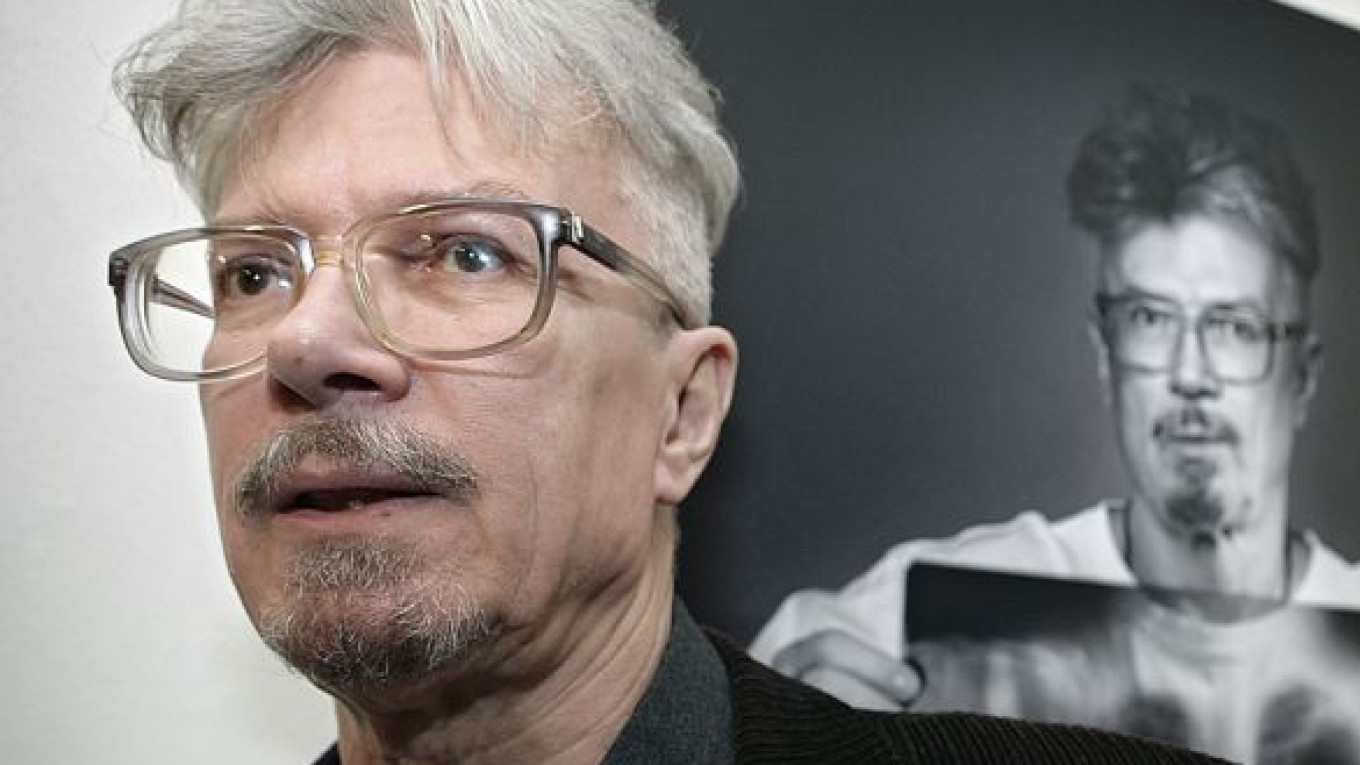The Other Russia, a party led by Kremlin foe Eduard Limonov, managed to get a lengthy manifesto laying out its political platform, including the nationalization of oil and gas, published in the Rossiiskaya Gazeta newspaper on Tuesday, stirring hopes that the opposition might gain a political voice.
The publication came four months after the newspaper, the government's official mouthpiece, printed the political platform of another opposition party, the leftist Russian United Labor Front, or Rot Front, in March.
These cracks in the stony silence maintained by state-controlled media toward the opposition for years are spurring talk about a possible liberalization of politics under President Dmitry Medvedev, who has made vague promises to include the opposition in the national political discussion.
But many opposition leaders remained skeptical, dismissing the publications as technical formalities that do not mean the Kremlin will recognize its opponents any time soon.
The 2001 law on political parties obliges Rossiiskaya Gazeta to publish the programs of public groups that apply to be registered as political parties by the Justice Ministry.
Parties without the ministry's registration may not take part in elections.
Rot Front, which lists opposition activist Sergei Udaltsov among its leaders, saw its first registration application shot down earlier this month. It filed a second application Monday and will be followed by The Other Russia, which just held its founding congress this month.
No opposition movement has managed to win registration as a political party since 2004, when legislation was passed requiring parties to have at least 50,000 members.
Limonov promised on his blog to fight for registration.
"We have created a political party and will strive for its recognition despite the expected refusal by the Justice Ministry to register it," said Limonov, former leader of the banned National Bolshevik Party.
He called the registration requirement "unconstitutional" when reached by phone Tuesday.
His party's populist platform, as published in Rossiiskaya Gazeta, is at times a far cry from the liberal principles that The Other Russia promised when it was established as a coalition of opposition groups in 2006. In addition to oil and gas, the platform calls for the nationalization of coal production, electricity and all construction companies.
It also promises to fight bureaucracy and the use of "administrative resources," introduce a luxury tax, lobby for independent judges and free media, end compulsory military conscription and even move the capital to a brand new city to be built in southern Siberia.
Udaltsov, who currently heads the Left Front youth group, said Rossiiskaya Gazeta's printing of the platforms offered "no indication" of a warming of the political climate, especially given the Justice Ministry's refusal to register his party.
"We see no changes yet, but our attempts to register the party will be indicative of whether [Medvedev's] words correlate with his actions," Udaltsov told The Moscow Times.
It is unclear whether The Other Russia meets the 50,000-member requirement, but Udaltsov said his party had some 60,000 members.
Sergei Mitrokhin, leader of the liberal opposition Yabloko party, created in 1993, well before the Kremlin started to tighten the screws, said there was "nothing significant" in the Rossiiskaya Gazeta publications.
"They are obliged by law to do it," Mitrokhin said by telephone.
Liberal politician Boris Nemtsov said the publications are "absolutely nonthreatening" for the authorities.
"Few people read this newspaper. This is a mere formality," Nemtsov said, adding that the opposition parties "stand no chance" of being registered.
His position was echoed by Nikolai Petrov, an analyst with the Carnegie Moscow Center. He said the publications were intended "to demonstrate that there is freedom of speech and pluralism," but the opposition parties have "not the slightest chance" of being registered.
But Alexei Makarkin, an analyst with the Center of Political Technologies, said a "cautious liberalization" has been unfolding under Medvedev's presidency.
"We will see the limits of the liberalization later, but the registration of new political parties could be an indicator," Makarkin said.
In February, Medvedev sent the State Duma a bill that would reduce the number of members that a group needs to have to be registered as a political party to 40,000 by 2012. The change would not affect Duma elections next year.
Authorities have disbanded at least six opposition parties that did not meet the 50,000-member quota, including one of Russia's oldest democratic parties, the Republican Party headed by Vladimir Ryzhkov. Seven parties are now registered in Russia, compared with 17 in July 2007.
The last party to win registration, Right Cause in February 2009, is widely seen as a Kremlin project aimed at creating a loyal liberal party.
A Message from The Moscow Times:
Dear readers,
We are facing unprecedented challenges. Russia's Prosecutor General's Office has designated The Moscow Times as an "undesirable" organization, criminalizing our work and putting our staff at risk of prosecution. This follows our earlier unjust labeling as a "foreign agent."
These actions are direct attempts to silence independent journalism in Russia. The authorities claim our work "discredits the decisions of the Russian leadership." We see things differently: we strive to provide accurate, unbiased reporting on Russia.
We, the journalists of The Moscow Times, refuse to be silenced. But to continue our work, we need your help.
Your support, no matter how small, makes a world of difference. If you can, please support us monthly starting from just $2. It's quick to set up, and every contribution makes a significant impact.
By supporting The Moscow Times, you're defending open, independent journalism in the face of repression. Thank you for standing with us.
Remind me later.


